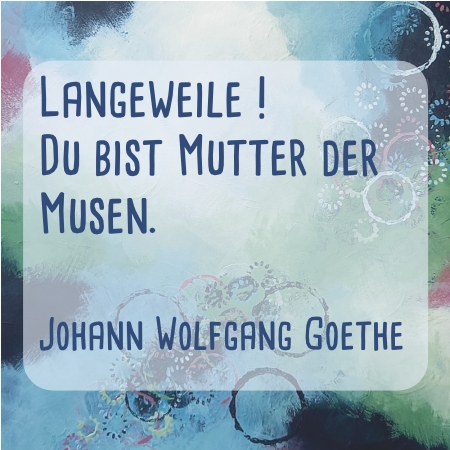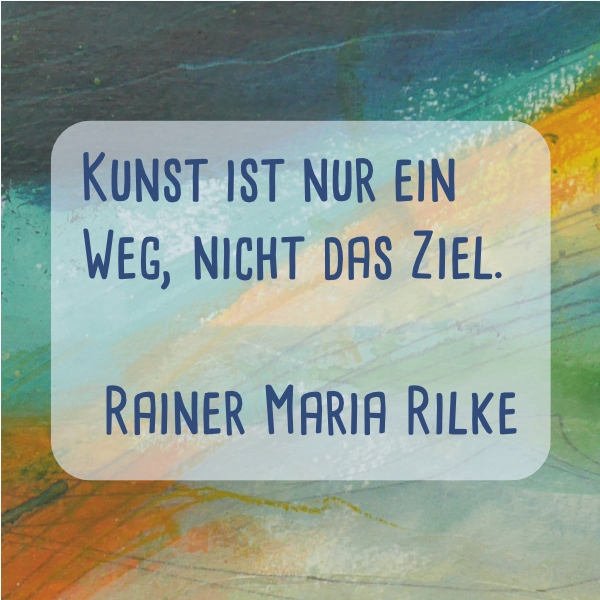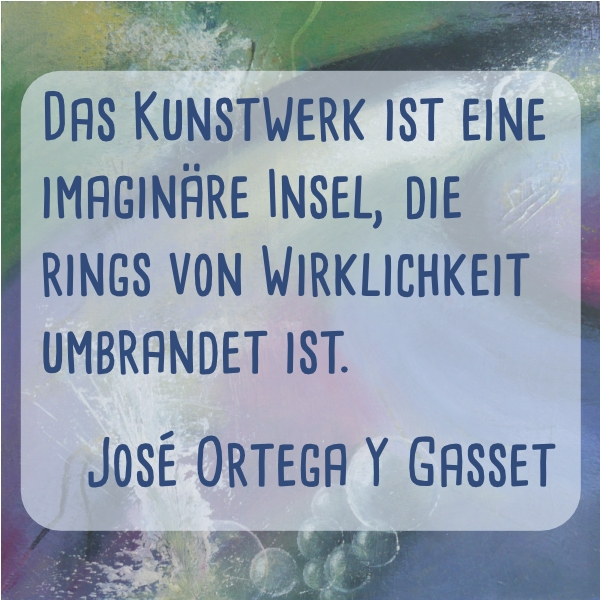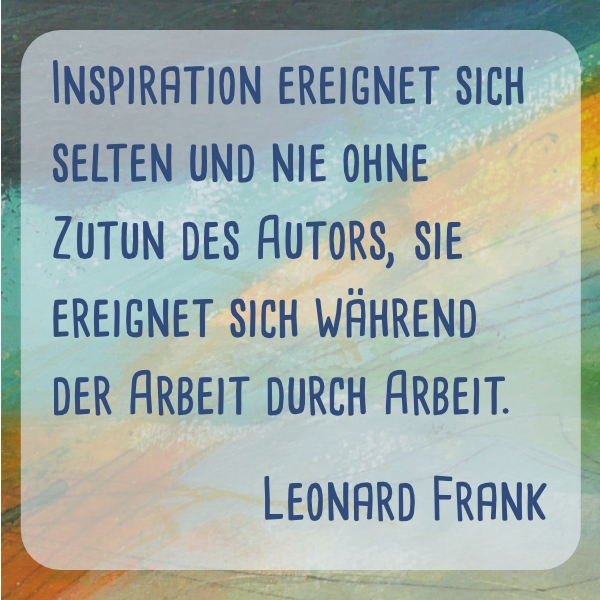Schon der “alte Goethe” wusste darum: Wir brauchen Leerlauf, um Inspiration zu finden. Und dabei lebte er in einer Zeit, in der es bei weitem nicht diese Menge an Ablenkungen und Zeitfüllern gab, die uns heute den Tag überlaufen lassen.
Können wir uns überhaupt noch langweilen? Einfach nur dazusitzen und nichts zu tun hat in unserer Gesellschaft den schlechten Ruf der Faulheit. Und diese gilt in der christlichen Vorstellung als eines der Hauptlaster, denn Fleiß und Arbeit sind – vor allem im Protestantismus – das Ideal.
In der Antike sah das noch anders aus. Da waren Muße und die “vita contemplativa”, also eine betrachtende, philosophisch-nachdenkliche Lebensweise, das Ziel. Wer arbeiten musste, war Sklave (etwas verkürzt gesagt).
Wissenschaftler haben sich mit Langeweile und ihren Auswirkungen beschäftigt.
Lang andauernde Langeweile kann gesundheitliche Folgen haben, weil sie Stress erzeugt, zu Kompensations-Handlungen (wie Alkoholmissbrauch oder Konsumsucht) führen kann bis hin zu Depressionen.
Kürzere Phasen von Langeweile können dagegen sogar Stress abbauen, weil sie uns zur Ruhe kommen lassen in dieser immer unruhiger werdenden Welt.
Sind wir gelangweilt, beginnen unsere Gedanken zu wandern. Wir denken ohne konkretes Ziel vor uns hin, was aus den Tiefen unseres Gehirns neue Ideen oder Zusammenhänge auftauchen lässt. Da sind sie, Goethes Musen, die uns inspirieren und – eine positive Folge gepflegter Langeweile – ins Tun bringen.
Vielleicht müssen wir – gerade als Künstler*innen – solche Zeiten von Nichtstun ohne Ablenkung bewusst in unsere Tage einbauen und den Musen damit die Tür öffnen.
Boredom and muses – Quote from Goethe
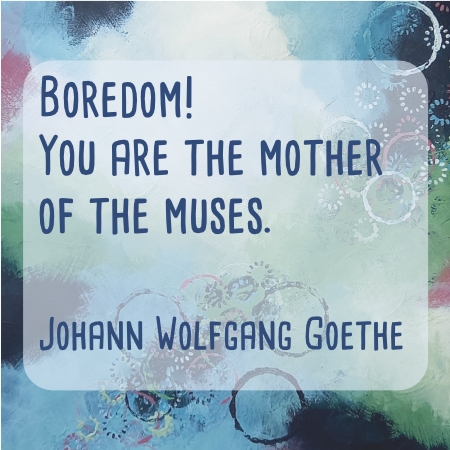
Even the “old Goethe” knew about it: We need idle time to find inspiration. And he lived in a time when there weren’t nearly as many distractions and time-fillers that let our days overflow.
Can we still be bored? Just sitting and doing nothing has a bad reputation as laziness in our society. And this is considered one of the main vices in the Christian imagination, because diligence and work are – especially in Protestantism – the ideal.
In ancient times it was different. The goal was leisure and the “vita contemplativa”, i.e. a contemplative, philosophical and thoughtful way of life. Anyone who had to work was a slave (slightly abbreviated).
Scientists have studied boredom and its effects.
Prolonged boredom can have health consequences because it creates stress, can lead to compensatory actions (such as alcohol abuse or consumerism) and even depression.
Shorter periods of boredom, on the other hand, can even reduce stress because they allow us to calm down in this increasingly restless world.
When we are bored, our minds start to wander. We think without a specific goal, which allows new ideas or connections to emerge from the depths of our brain. There they are, Goethe’s muses, who inspire us and – a positive consequence of cultivated boredom – bring us to action.
Maybe we – especially as artists – have to consciously build such times of doing nothing without distraction into our days and thus open the door to the muses.
